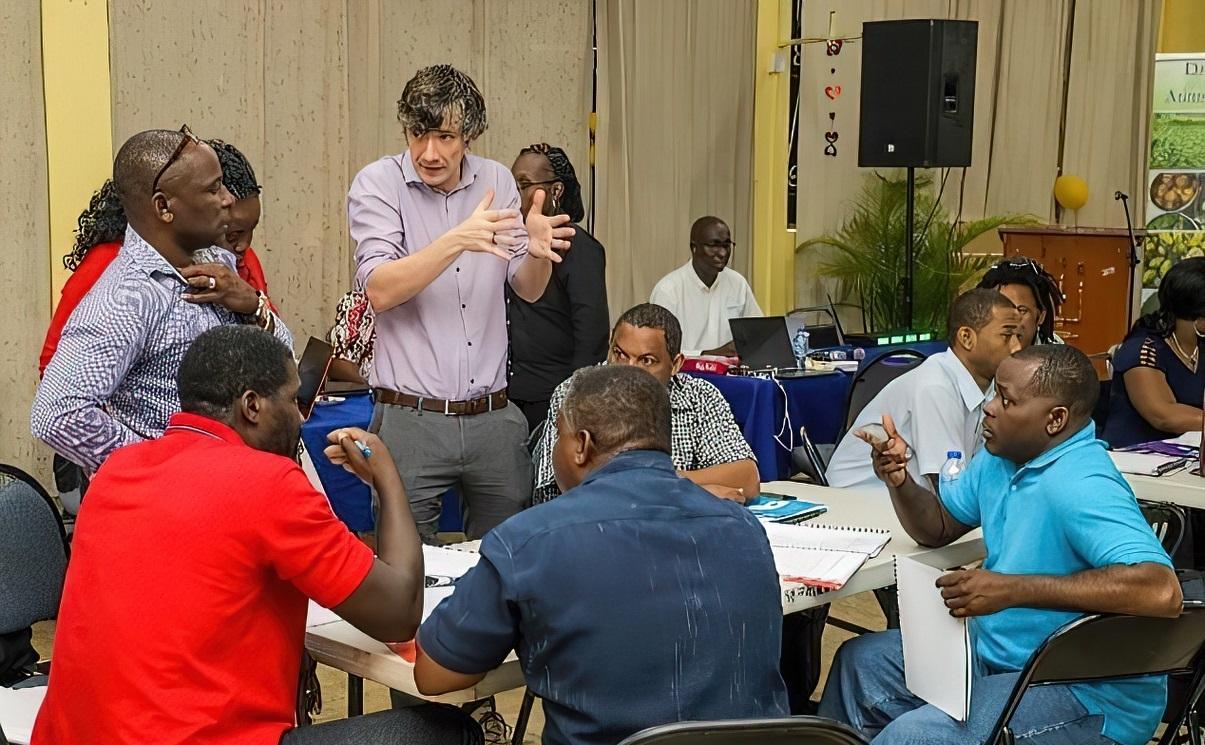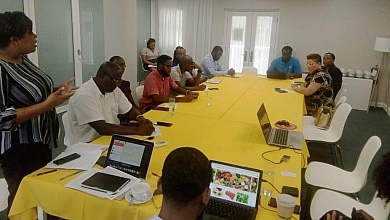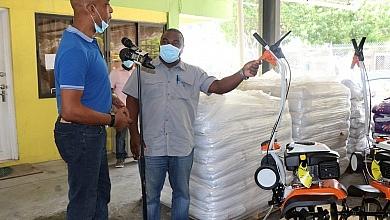Small scale farmers in Dominica generally have had limited access to relevant climate and weather information to help with planning their agricultural practices. To address this issue, the Department of Agriculture and the Dominican Meteorological Services have been implementing an approach called Participatory Integrated Climate Services for Agriculture (PICSA), which communicates useful and useable climate information with farmers, as part of a UNDP-led, Government of Japan-funded project that aims to strengthen farmers’ ability to deal with climate disasters in Dominica.
The PICSA approach, developed by researchers at the University of Reading (UoR) in the UK has been used with hundreds of thousands of farmers in more than twenty countries globally.
A team from UoR has been working closely with the Caribbean Institute for Meteorology and Hydrology (CIMH) to build the capacity of extension staff across Dominica to support the farmers they work within assessing the effects and related risks of climate variability and change in their local area. Importantly, PICSA puts the emphasis on individual farmers as decision-makers, as they are the true experts on their individual farms and circumstances.
Department of Agriculture staff have thus far trained more than 327 farmers, 61% of them female farmers, in a series of different skills and activities that make up the PICSA approach. This includes analysing historical climate trends, identifying possible responses to risks, budgeting, planning, and integrating the seasonal forecast into their strategies and plans. Initial responses from farmers have been very positive with most reporting that they are using the new tools and information in their farm planning. Farmers reported that the training had helped them to better plan their agricultural
calendar, adapt planting times and the way that they prepared their land, improved their record keeping and increased their income from livestock. A farmer in St Patrick said, ‘I hope the meetings and training can be continued …. everything was very helpful and gave people stimulus to assess what they are doing on their farm’.
The PICSA approach is one of many interventions of the GUY-DOM project aimed at strengthening the disaster management capacity of women in the Co-operative Republic of Guyana and the Commonwealth of Dominica. The project focuses on 3 aspects of disaster management:
- Preparation for impending disaster
- Adapting practices taking into account impending disaster
- Mitigating the effects of disaster
There other major project interventions, are:
The procurement and installation of Early Warning Systems; and building capacity of the MET service, the lands and survey department, the Office of Disaster Management and building capacity of the Community Disaster Management Committees in their use and maintenance of these Early Warning Systems.
- Building capacity in the area of access to farming and financial products for farmers. The project is providing trained farmers with tools and materials, grants and loans.
- Knowledge exchange. The project is organizing the sharing of information among farmers across communities within Dominica, and between farmers in Dominica and Guyana.
All four interventions pay attention to gender equality and address a challenge that the farmers face and will result in:
- The installation of 15 new Early Warning System devises across the country
- 10 Early Warning System focal points trained to use and maintain the Early Warning System equipment
- At least 6000 households will be served by the Early Warning Systems devises that are installed
- At least 100 households will have participated in education programmes on how to respond effectively to early warnings
- At least 20 extension officers and 20 forest officers will be trained in providing climate advisory services to farmers
- At least 30 farmers will be trained to use climate information when making decisions on their farm
- At least 100 farmers will benefit from either tools and materials, a group grant or a soft loan
- At least 4 farmer networks will be formed and become active in sharing knowledge on resilient agricultural practices and early warning systems
The GUY-DOM project is funded by the Government of Japan and implemented in partnership with the Government of Dominica.
This article is copyright © 2021 DOM767









